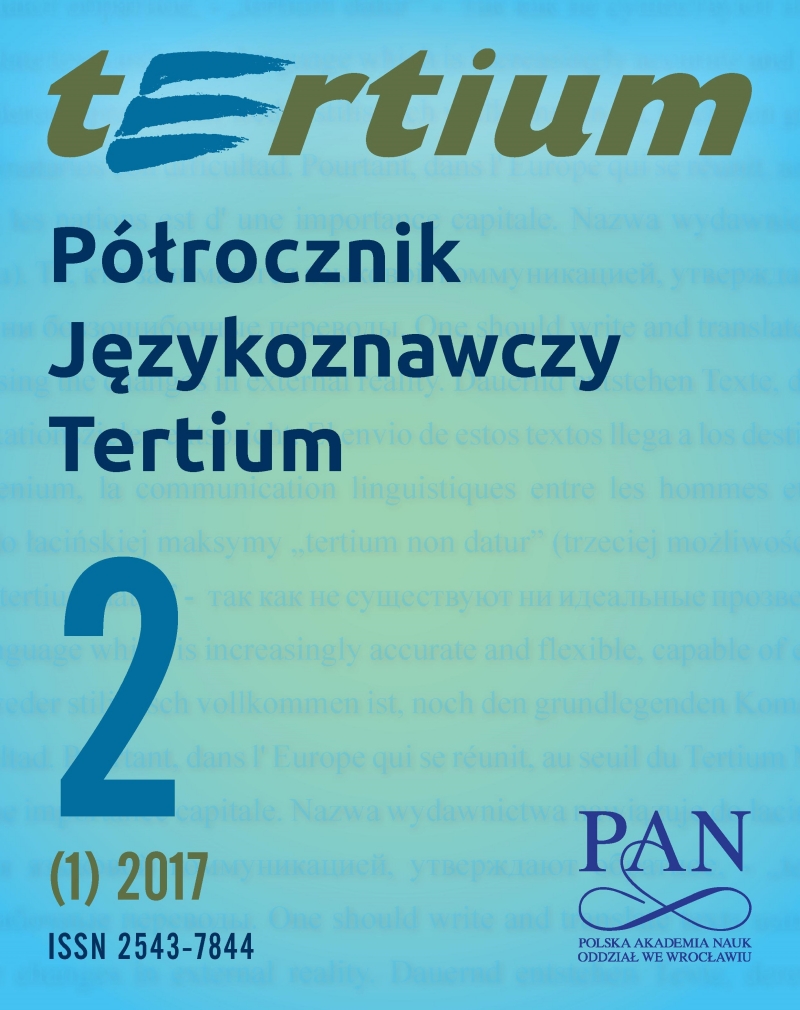Abstrakt
The online community of science fiction and fantasy fans constitutes a rich source of material for analysing reader response to translations as its members often reflect not only on the books they read but also on the quality of their translations. The Polish translations of Terry Pratchett’s The Wee Free Men are a good example of translations which evoked ample response online, with criticism focusing on the reasons for initially not employing the usual translator of the Discworld series, the treatment of names and dialect in the translation, and the issues connected with defining the target reader of the text and adjusting the text to their needs. The analysis of online reactions shows that translation solutions are considered problematic by readers especially when the reasons behind them are not clear.
Bibliografia
Baker, Mona, Gabriela Saldanha (2009) (ed.) Routledge Encyclopedia of Translation Studies.Abingdon: Routledge.
Berezowski, Leszek (1997)Dialect in Translation. Wrocław: Wydawnictwo Uniwersytetu Wrocławskiego.
Dybiec-Gajer, Joanna (2012)“Reader’s Response as a Survey-Based Tool for Translation Quality Assessmentand its Implications for Translator Training.” Annales Universitatis Paedagogicae Cracoviensis. Studia Anglica II, 117, 14-25. http://studiaanglica.up.krakow.pl/wp-content/uploads/2014/01/Folia117.pdf
Falconer, Rachel (2008) The Crossover Novel. Contemporary Children’s Fiction and Its Adult Readership.London; New York: Routledge.
Guttfeld, Dorota (2008) English-Polish Translations of Science Fiction and Fantasy. Preferences and Constraints in the Rendering of Cultural Items.Toruń: Wydawnictwo Naukowe GRADO.
McGillis, Roderick (2014) “The Wee Free Men: Politics and the Art of Noise.” [In:] Anne Hiebert Alton, William C. Spruiell (eds.) Discworld and the Disciplines: Critical Approaches to the Terry Pratchett Works. [Kindle version]. Retrieved from Amazon.com
Munday, Jeremy (2012) Introducing Translation Studies. Theories and Applications. Abingdon: Routledge.
Pratchett, Terry (2003) The Wee Free Men.London: Corgi Books.
Pratchett, Terry ([2003] 2005) Wolni Ciutludzie[The Wee Free Men.London:Doubleday]. Translated by Dorota Malinowska-Grupińska. Warszawa: Prószyński i S-ka.
Pratchett, Terry ([2003] 2013) Wolni Ciut Ludzie [The Wee Free Men. London: Doubleday]. Translated by Piotr W. Cholewa. Warszawa: Prószyński i S-ka.
Szwebs, Weronika(2016) “Tłumacz jako marka? O tym, co zastąpiło kryteria w internetowej recepcji przekładu Wielkiego Gatsby’ego Francisa Scotta Fitzgeralda.” Między Oryginałem a Przekładem. XXII, 4 (34). Kraków: Księgarnia Akademicka. 95–116. http://www.akademicka.pl/ebooks/free/6c399d15bd4f13e57c98068f1a6e9e9e.pdf
Venuti, Lawrence (2004) The Translator’s Invisibility. New York: Routledge.

Utwór dostępny jest na licencji Creative Commons Uznanie autorstwa – Użycie niekomercyjne – Bez utworów zależnych 4.0 Międzynarodowe.
Prawa autorskie (c) 2017 Półrocznik Językoznawczy Tertium

